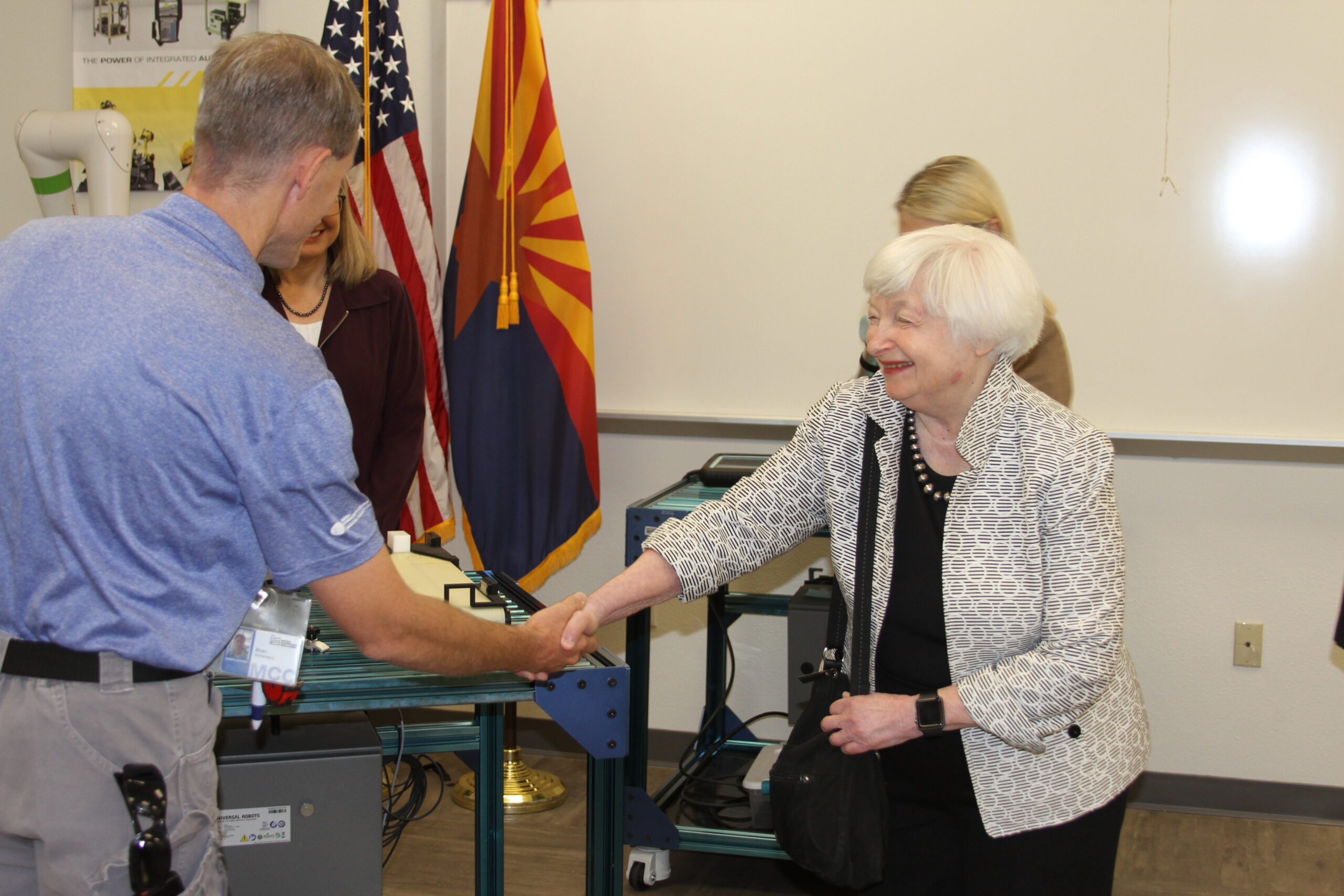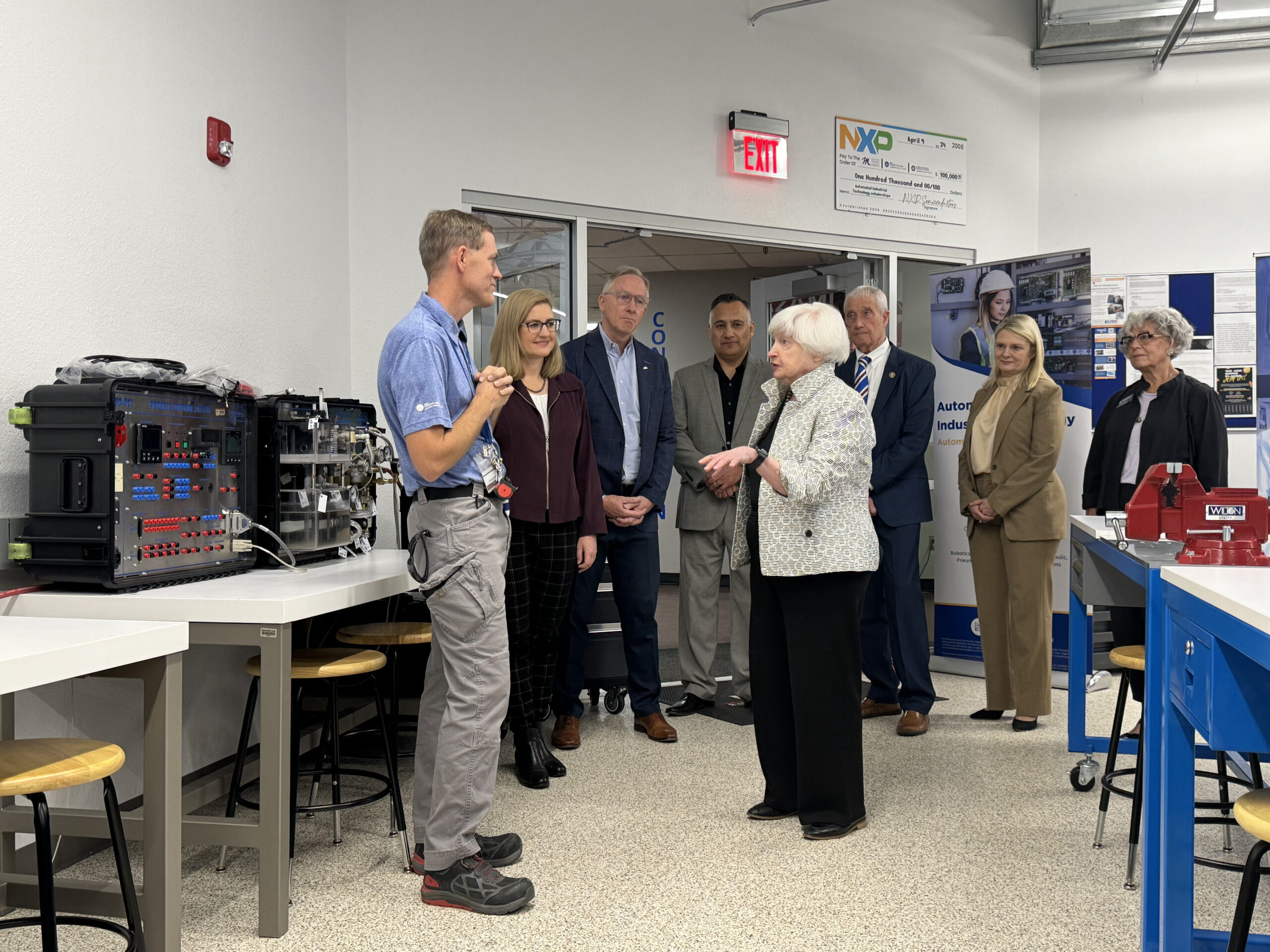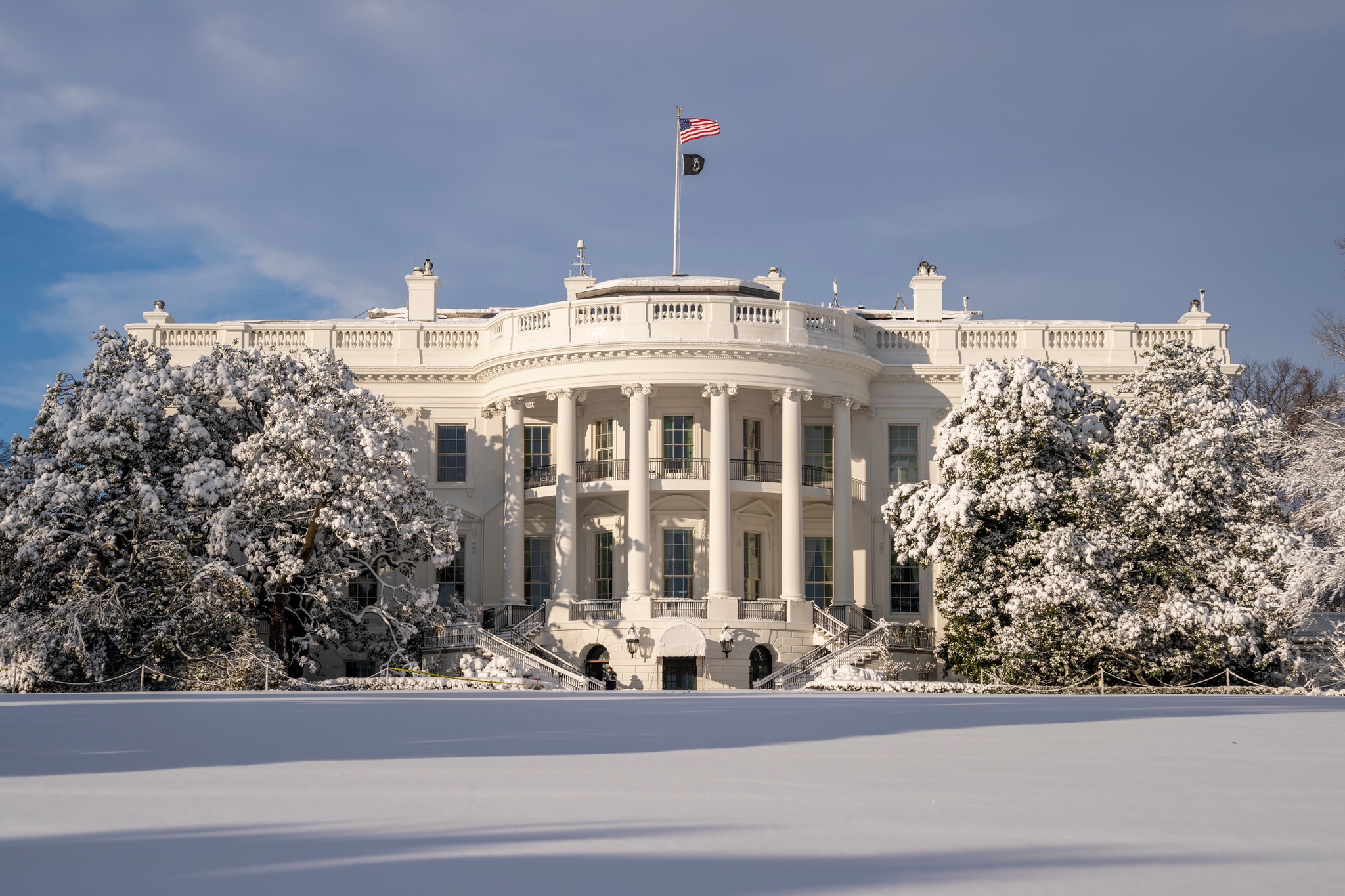Mesa Community College represented at White House campus press briefing
The White House held a virtual campus press briefing on Sept. 25 over Zoom to address “college affordability, mental health, climate change, and other student priorities,” according to an email sent to the Mesa Legend.
The speakers at the briefing included Press Secretary Karine Jean-Pierre and Communications Director Ben LaBolt.
LaBolt opened the briefing by addressing the three topics mentioned in an email sent to the Mesa Legend, the first of which being the affordability of a higher education.
“This fall, secondly, the President’s administration canceled $117 billion in student loan debt for more than 3 million borrowers. This includes 45 billion dollars for teachers and other public servants through the improved public Service Loan Forgiveness program, which forgets any remaining student debt for folks who work in public service and make payments for 10 years,” said LaBolt.
LaBolt also shared information about the Saving on a Valuable Education plan, also known as the SAVE plan.
“Alumni for borrowers on this plan payment depend on their income and their family size, not their loan balance, and any remaining balances forgiven after a certain number of years, so this planning cuts for hours monthly payments to 0 if they make less than $30,000 a year they make more than $30,000 a year,” said Labolt.
While the Biden administration’s efforts to relieve student debt have seen difficulty going through the judiciary process, they still promise to alleviate student debt for students in fear of being limited due to the current repayment system.
Additionally, LaBolt acknowledged possible delays in aid or assistance should be expected if a government shut down were to occur amidst the discussions by officials in the house over proposed bills regarding government spending.
“But look a prolonged shutdown lasting more than a few weeks could substantially disrupt the return to repayment effort and long-term servicing for borrowers,” said LaBolt.
LaBolt then moved into the topic of climate change and the Biden administration’s effort to address the issue.
“The President sees this as really the one existential threat to humanity, an existential threat to the United States and something that he’s committed to taking the most substantial domestic and international action that’s ever been taken by a President before,” said LaBolt.
The Biden administration has signed into law the Inflation Reduction Act in an effort to cut emissions in half by 2030, as well as double the solar, wind, and batteries being deployed across the country over the next 10 years, according to LaBolt.
LaBolt also highlighted the work being done by the Biden administration to protect the lands and resources located within the United States.
“I don’t think this has gotten as much attention as it deserves. He’s protected more than 21 million acres of public lands and waters, and is on track to conserve more lands and waters than any president in history,” said LaBolt.
LaBolt then highlighted the American Climate Corps, a government program looking to create new jobs, as well as “train them to do things like, restore our lands and waters, bolster community resilience, deploy clean energy, and implement energy efficient technologies.”
LaBolt then moved into the final of the three topics covered during the briefing, mental health.
Improving mental health has long been a part of Biden’s “Unity Agenda” which was laid out as a method for addressing four areas of conflict.
“The president signed into law last summer a law called the Bipartisan Safer Communities Act, which invests a billion dollars over the next 5 years to help young people access mental health care,” said LaBolt.
The money is being used to train mental health professionals and place them into schools, according to LaBolt.
LaBolt explained that the president views the current system of insurance coverage of mental health related issues as “not fair”, and shared the desire to create regulations to improve the quality of mental health care covered by insurance.
The Biden administration has also secured $200 million in aid for the suicide and crisis hotlines, according to LaBolt.
The speakers then took questions from members of the press on questions ranging from environmental sustainability to funding for community college.
The first question regarded Biden’s plans for student debt relief as he nears the end of term, and came from Emma Hogan of The Quad at West Chester University in Pennsylvania.
Bahart Ramamurti, deputy director of the National Economic Council, said that on top of the $117 billion student debt forgiven this year, Biden has made efforts to make relief more effective for pre-existing loan forgiveness programs for in-demand professions like nurses, teachers, and first responders.
“We’ve gone from a few 100 people getting their loan forgiveness under that program to tens of thousands of people,” said Ramamurti.
Ramamurti also mentioned the Biden administration focusing on a program for income forgiveness, which caps the amount you must pay towards a loan based on a number of payments that are met, which can lead to the entire debt being forgiven.
Despite this, Ramamurti reminded attendees that the fate of student debt relief was in the hands of the Republican lead supreme court, which struck down a June student forgiveness plan that would have provided $20,000 for millions of Americans.
The next question focused on what the Biden administration’s plans to support community colleges across the nation were, and came from the Mesa Legend’s own managing editor, Adam Terro.
LaBolt spoke on Biden’s commitment this year to community colleges as a “big priority for the President.”
“One of the big accomplishments of this President and this administration, [was] to update and invest 12 billion dollars in community college infrastructure, he’s also pushed for access to free community college,” said LaBolt.
Arizonans witnessed Biden’s support this year when First Lady, Jill Biden, visited MCC to emphasize the president’s commitment to community colleges.
Ramamurti added that the income based forgiveness plan was set up to specifically help those with smaller debts, and that the typical community college student was a prime candidate for this.
“For most people, it’s 20 years of payments for folks, with these smaller balances it’s only 10 years,” said Ramamurti in reference to the income based forgiveness program.
The next question was aimed at how Biden would handle higher education universities after the supreme court’s ruling on affirmative action that prohibits the admission of a student based on their race and social status, and came from Yana Mulani of the Johns Hopkins Newsletter at Johns Hopkins University.
Karine Jean-Pierre, White House press secretary, said the supreme court’s ruling was “very disappointing.”
Jean-Pierre said that Biden had met with his board of advisors of historical black colleges and universities, as recently as Monday morning, to speak on the future of affirmative action to ensure that diverse people still get the opportunity to achieve a higher education.
LaBolt was quick to echo Biden’s disappointment on the ruling, which he says limits the amount of diversity to be found in American universities.
Despite the supreme court ruling, LaBolt said an August statement sent to American universities encouraged them to factor in how a student’s race has impacted their individual experience, something he says is still important for colleges to take into account.
The final question focused on what the Biden administration would do to ensure long term policies that would fight climate change, and was asked by Jackson Dembrosky of the Kennesaw State Sentinel at Kennesaw State University in Georgia.
Maria Michalos, an associate communications director at the White House, said that the president’s fight against climate change is part of a “whole government approach.”
One of the key ways this has been done is by signing into law the Inflation Reduction Act, which Michalos said is the largest investment in climate and environmental justice in history.
Michalos also cited the Defense Production Act, which she said is used to ensure that production of clean energy is manufactured here in the United States.
Recent supreme court rulings that limit the EPA powers made Dembrosky concerned, but Michalos said the limit on pollution output from power plants was something that could still be combatted.
“Just this spring, [the] EPA released a really strong proposal that’s going to help us avoid more than 600 million metric tons of carbon dioxide through 2042, and to you know really describe the impact of what we’re talking about here that’s the annual emissions of 137 million passenger vehicles,” said Michalos.
“So, while the Supreme Court may have limited some of the creativity, it did not take away the EPA’s ability to address these pollution burdens,” Michalos added.












